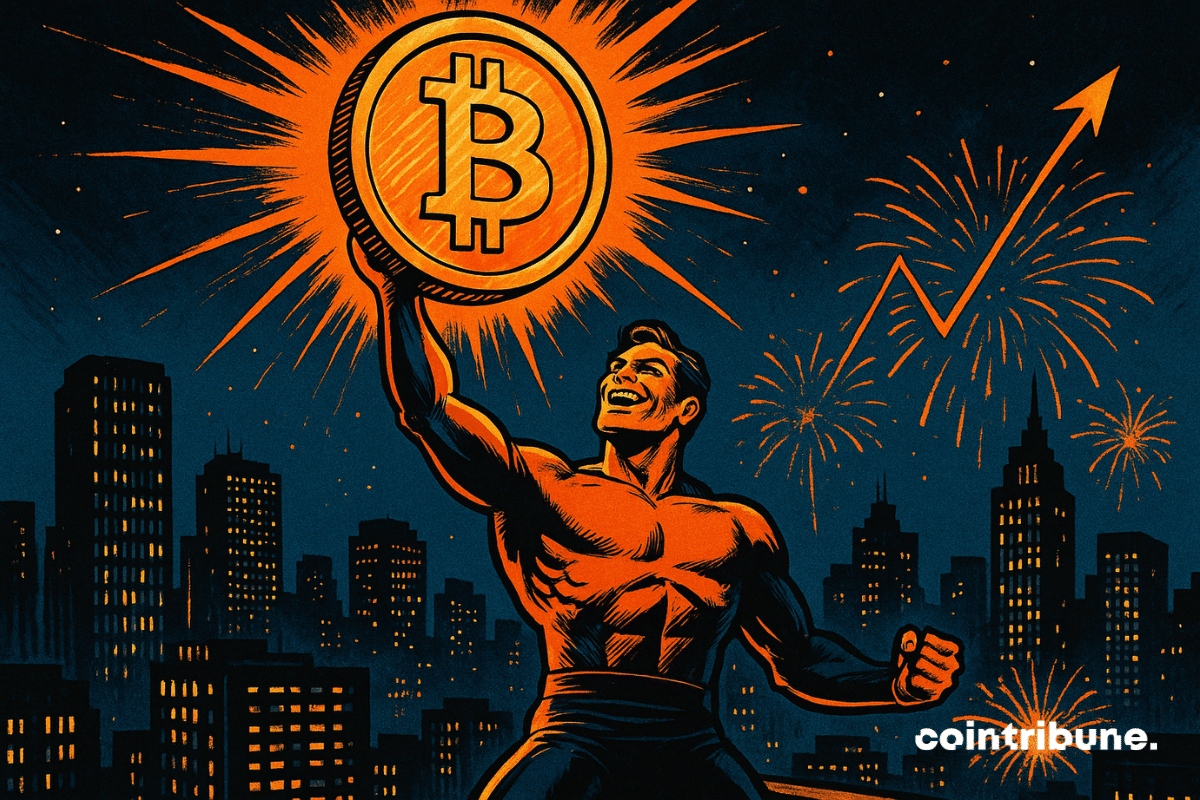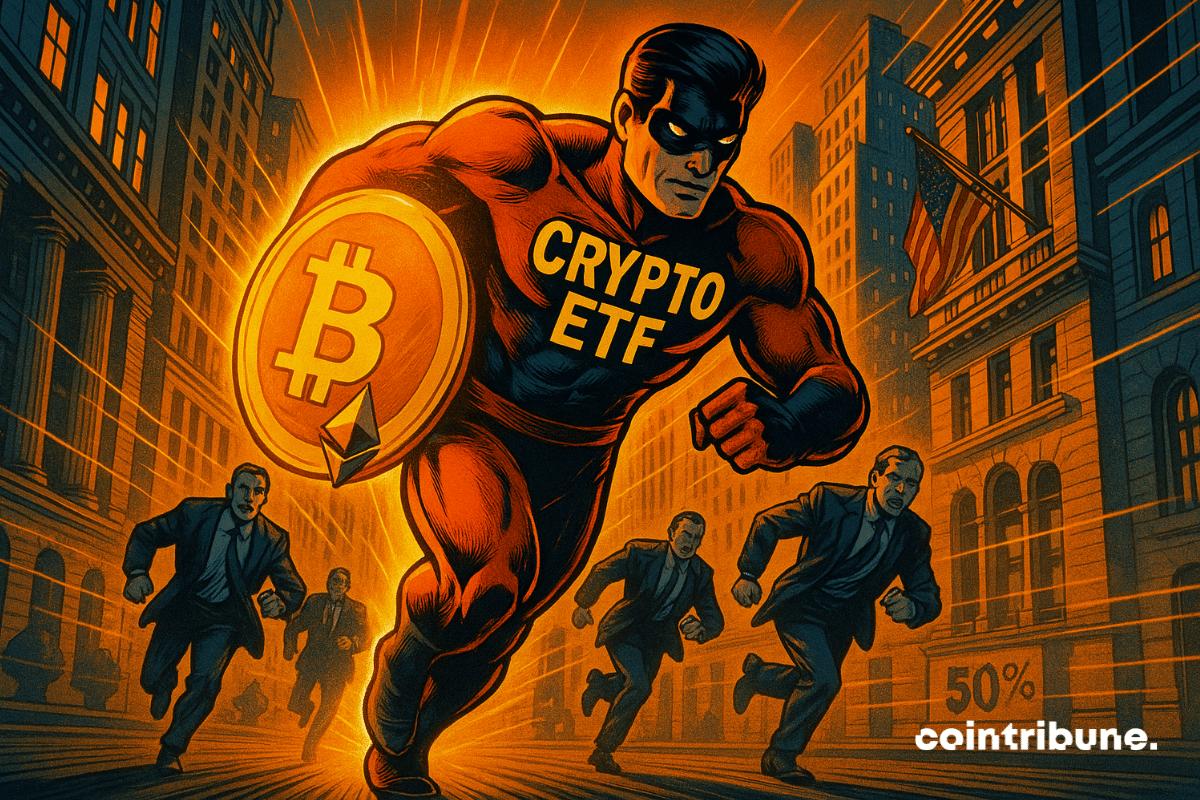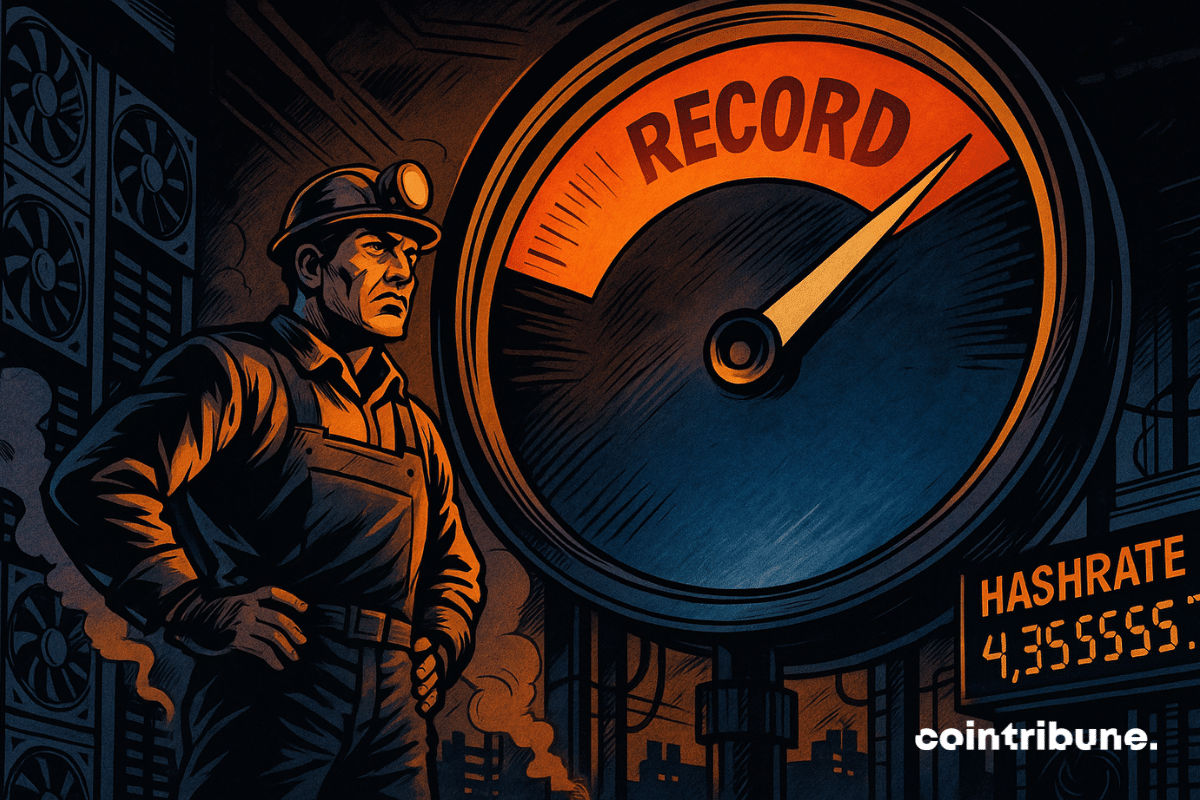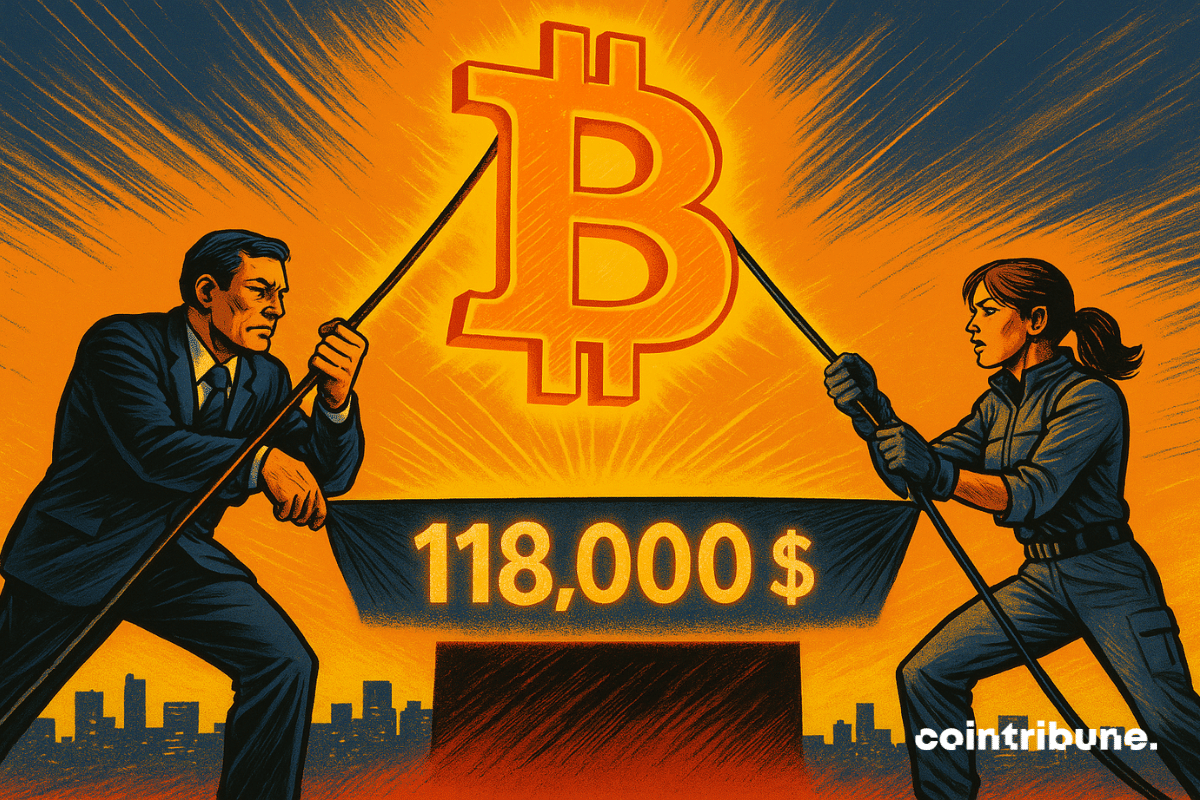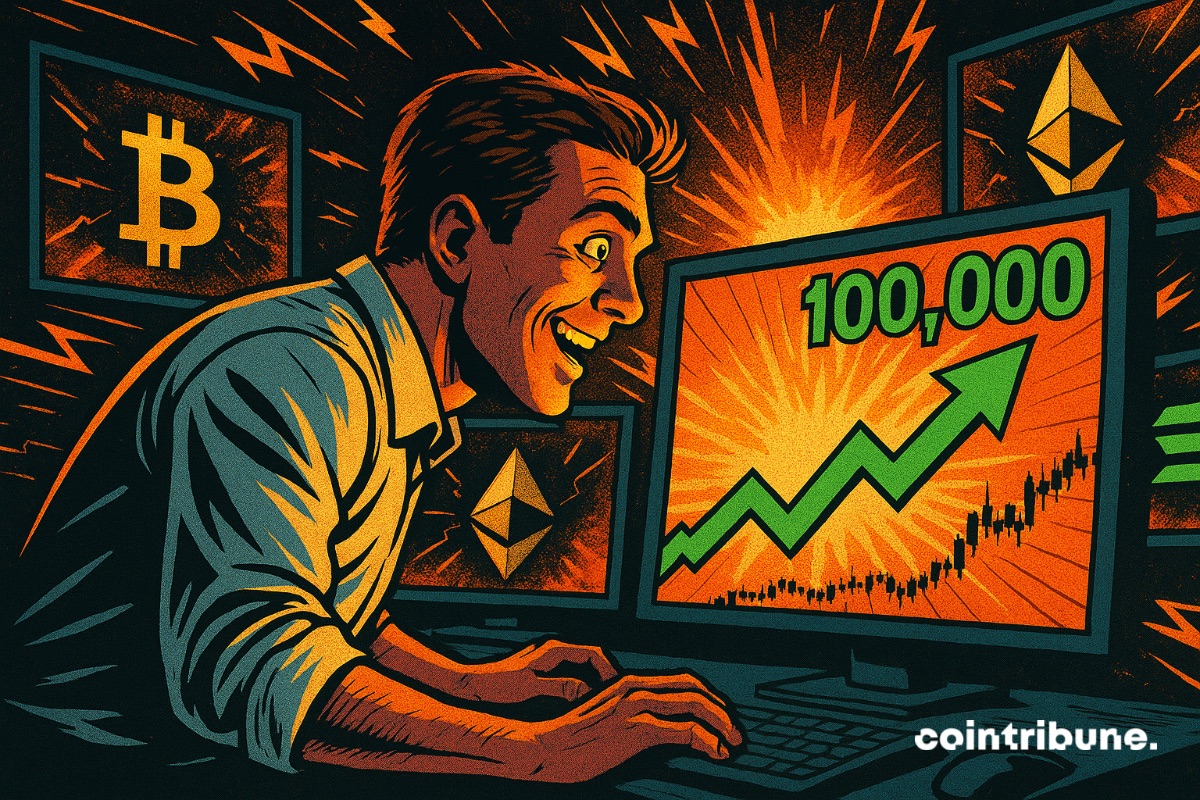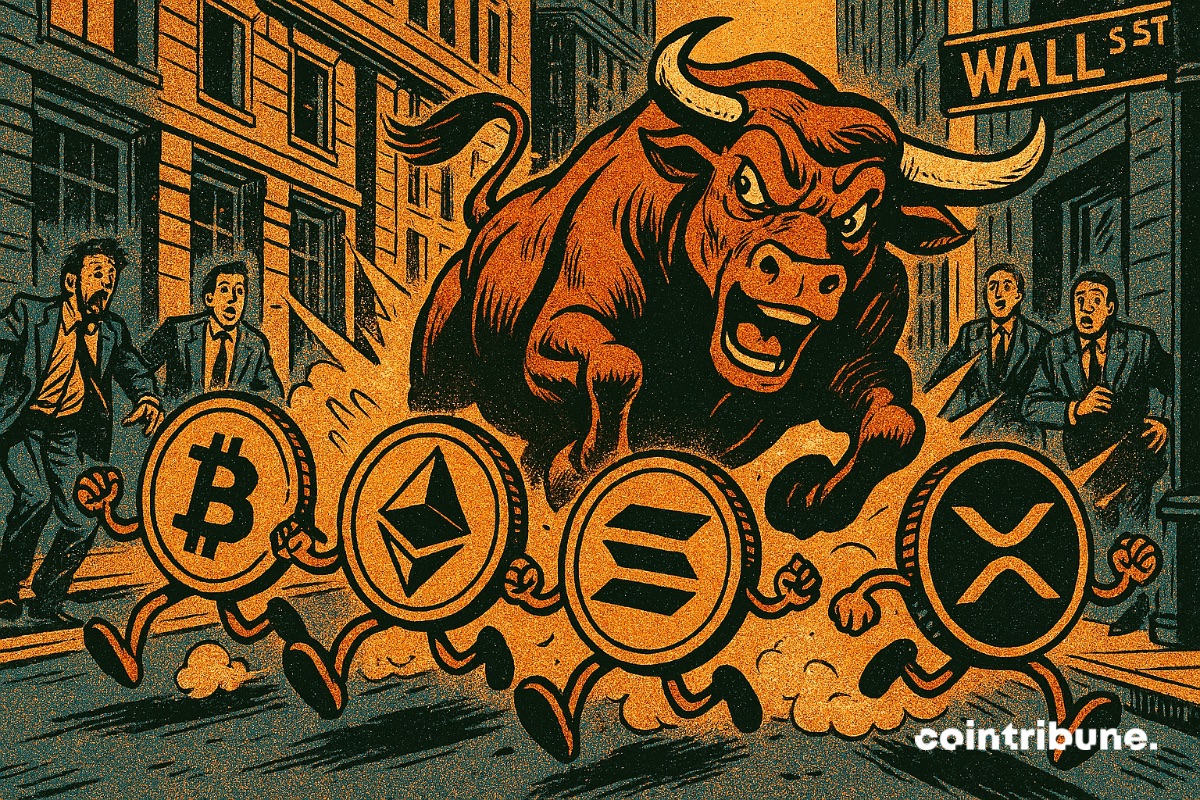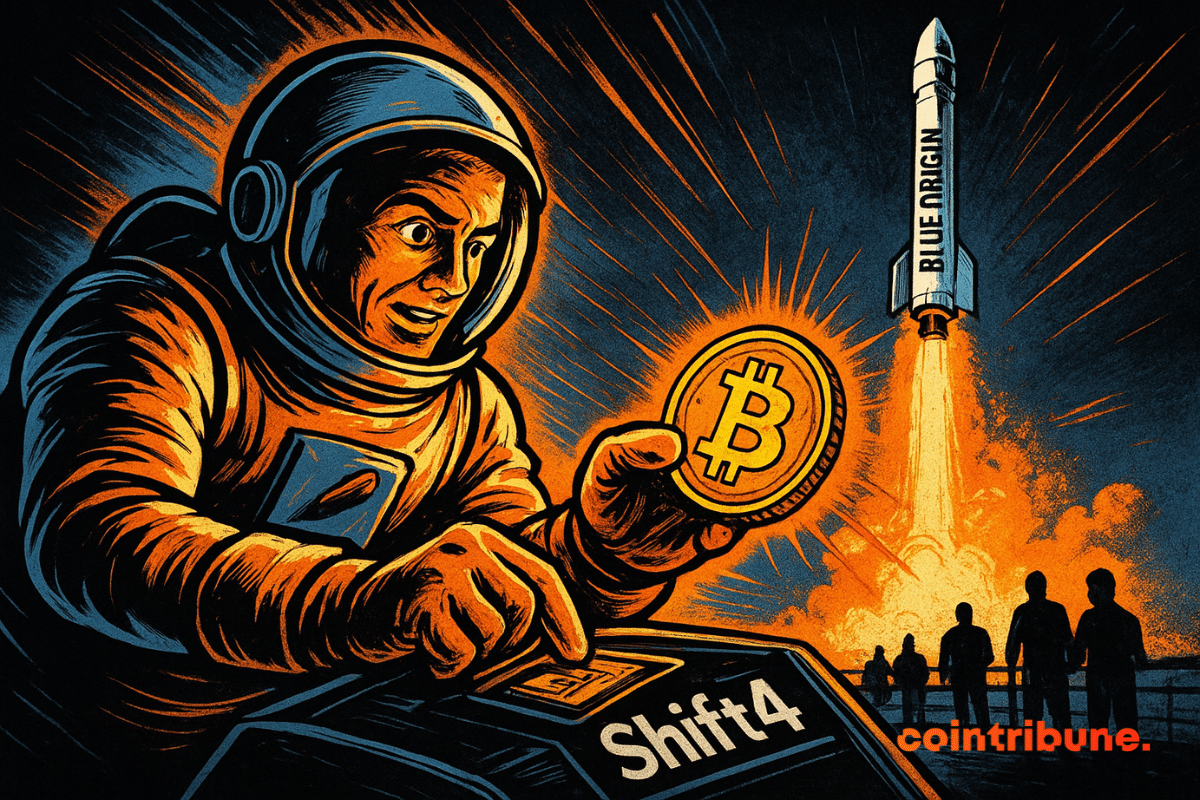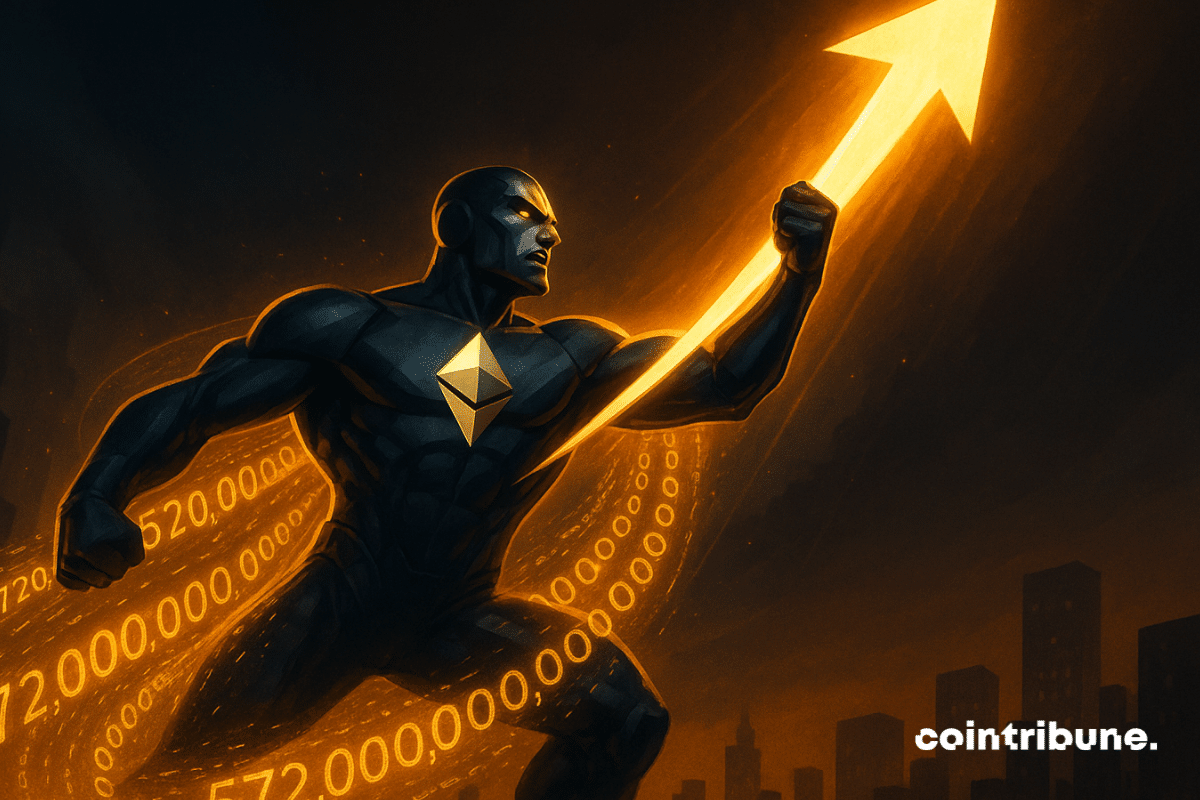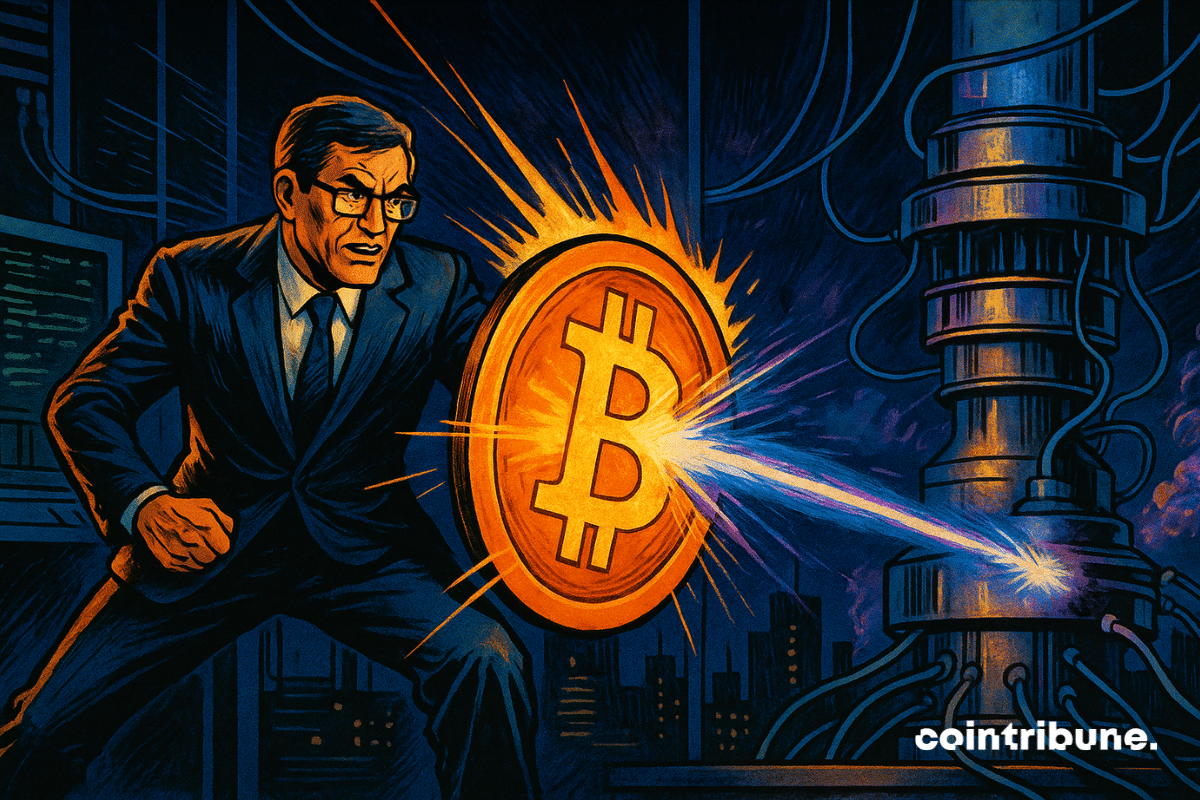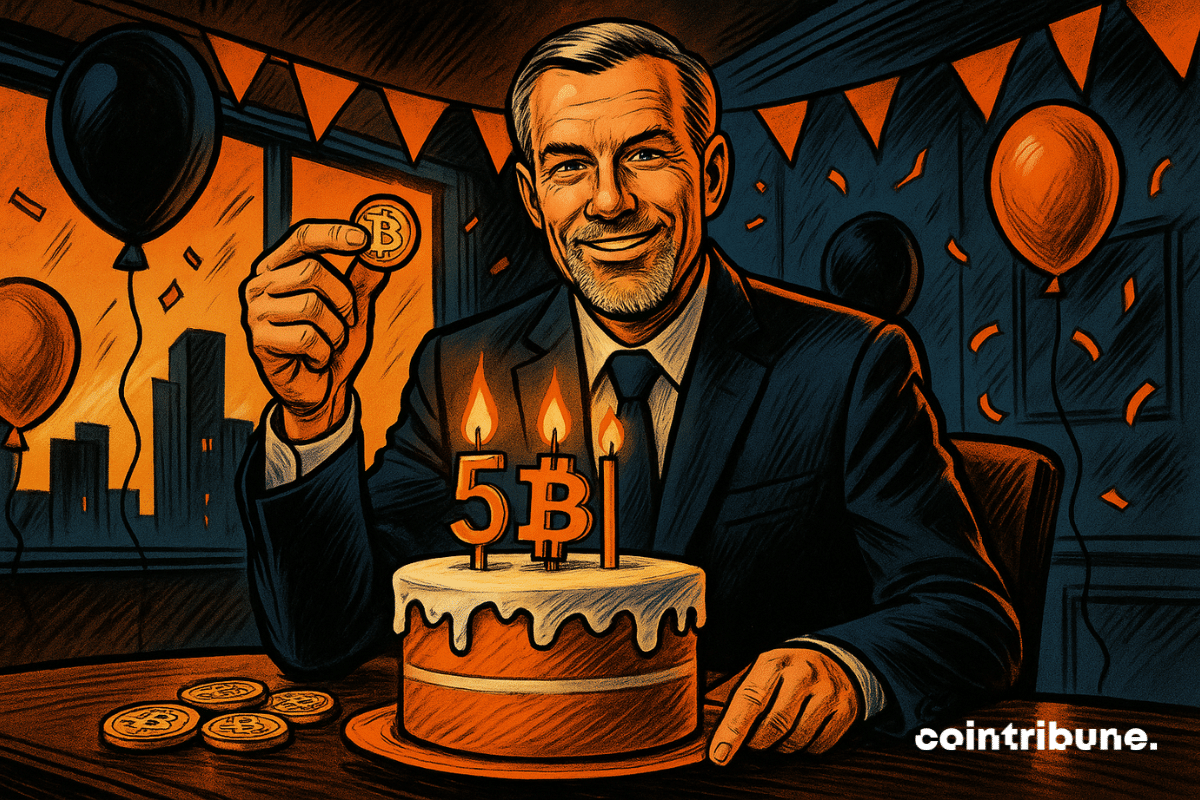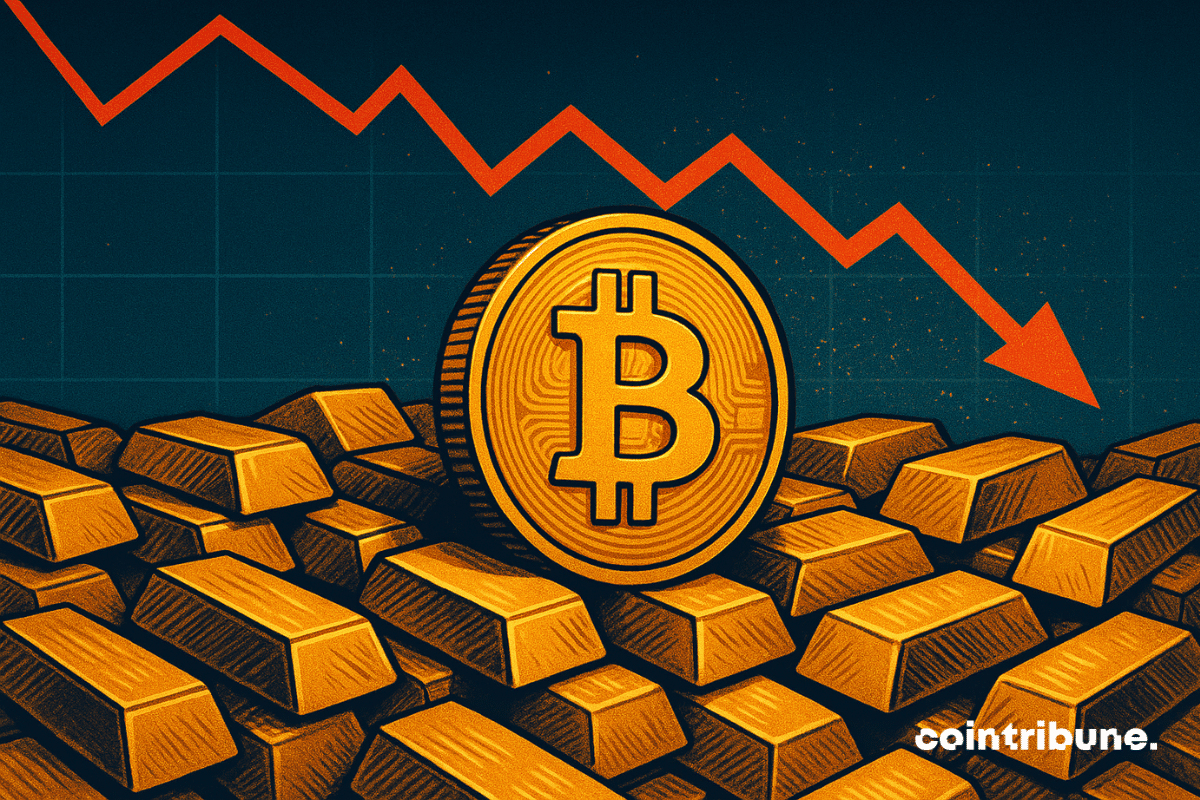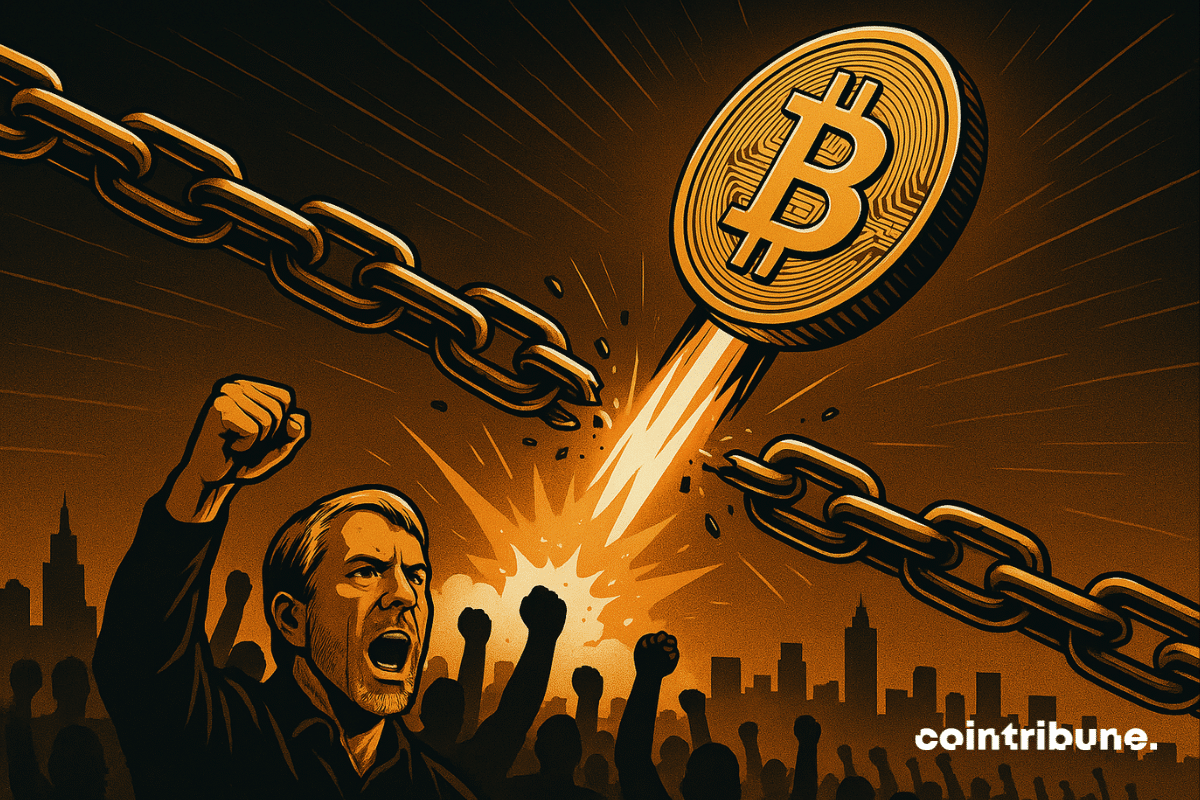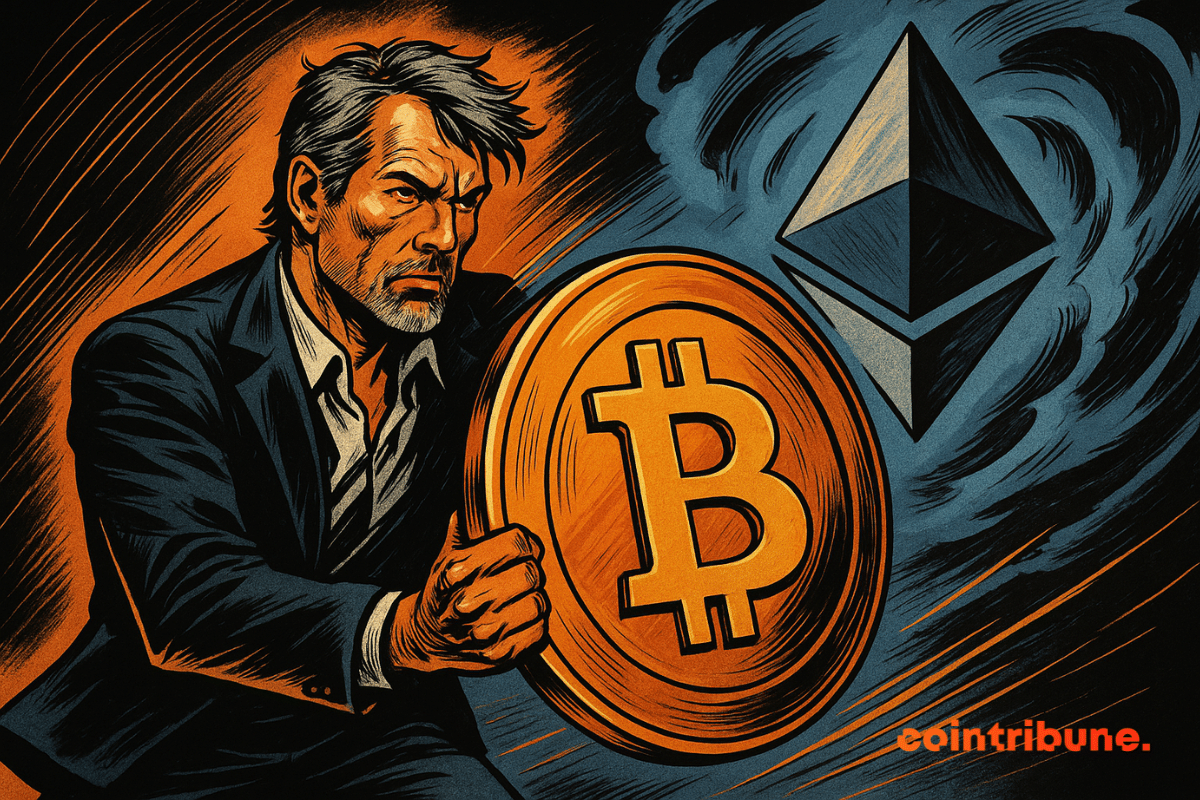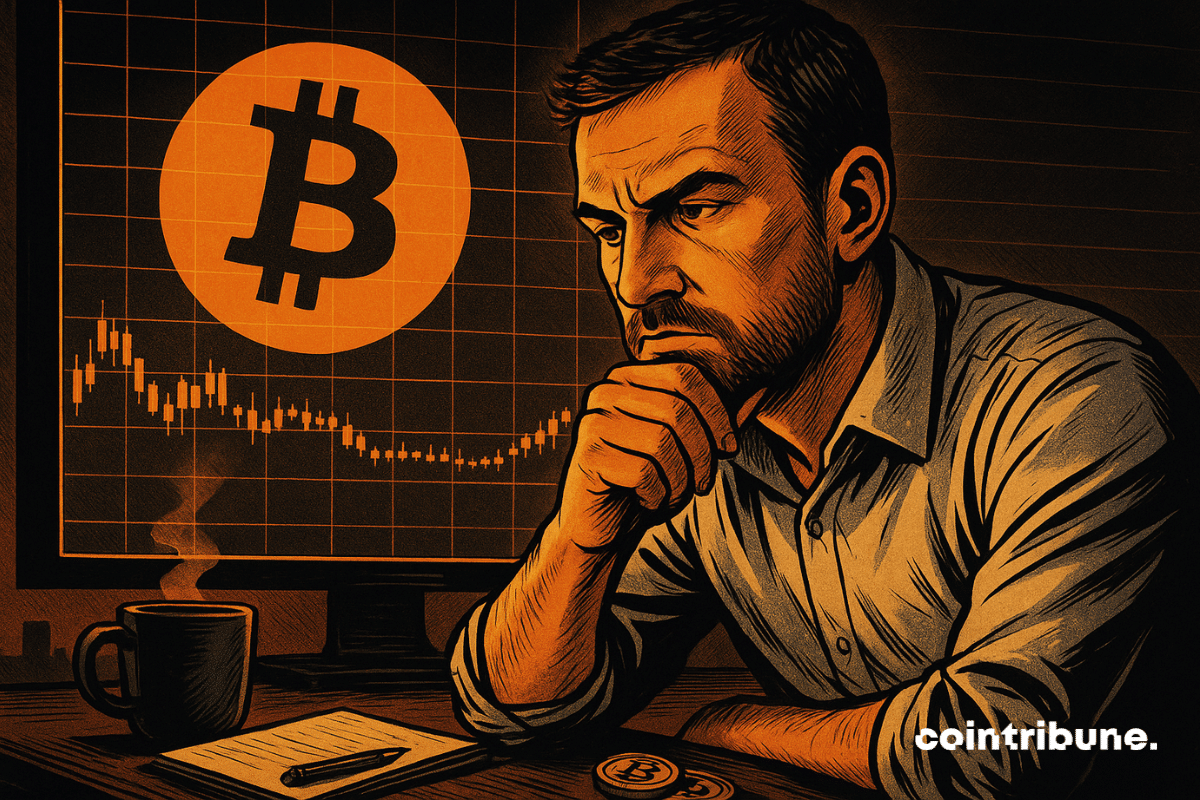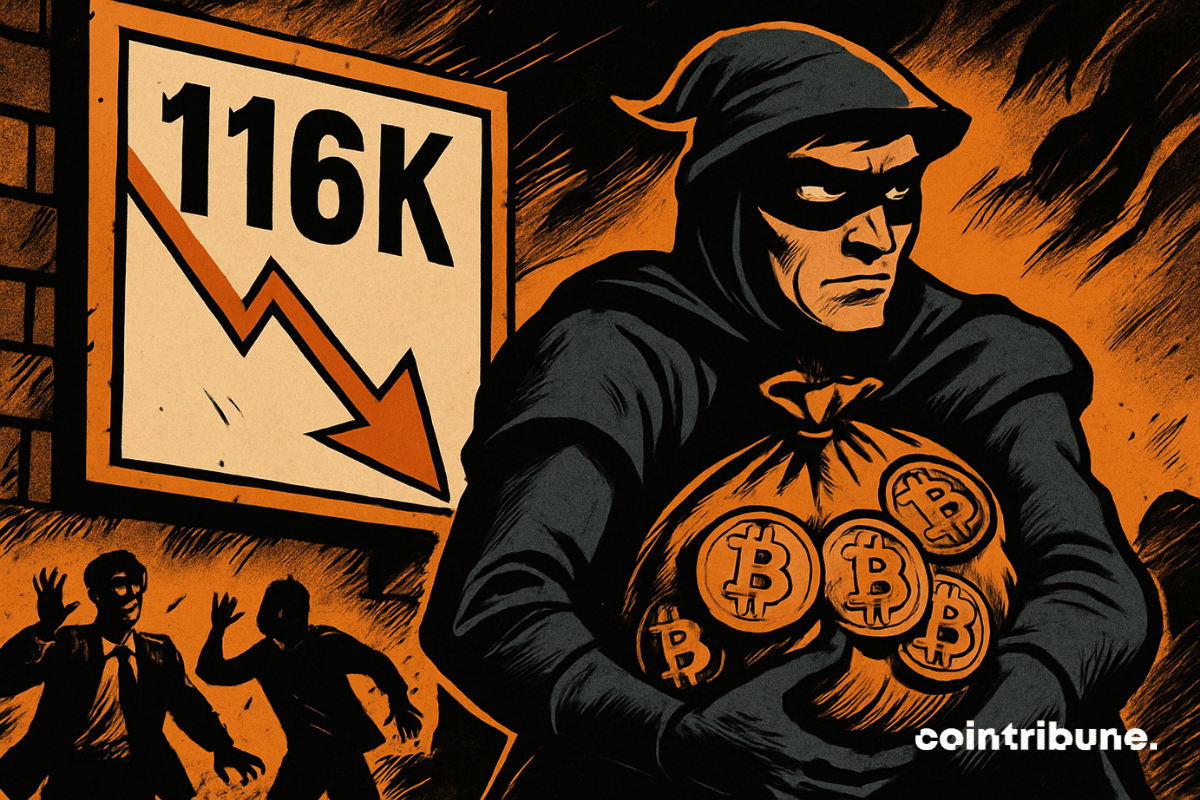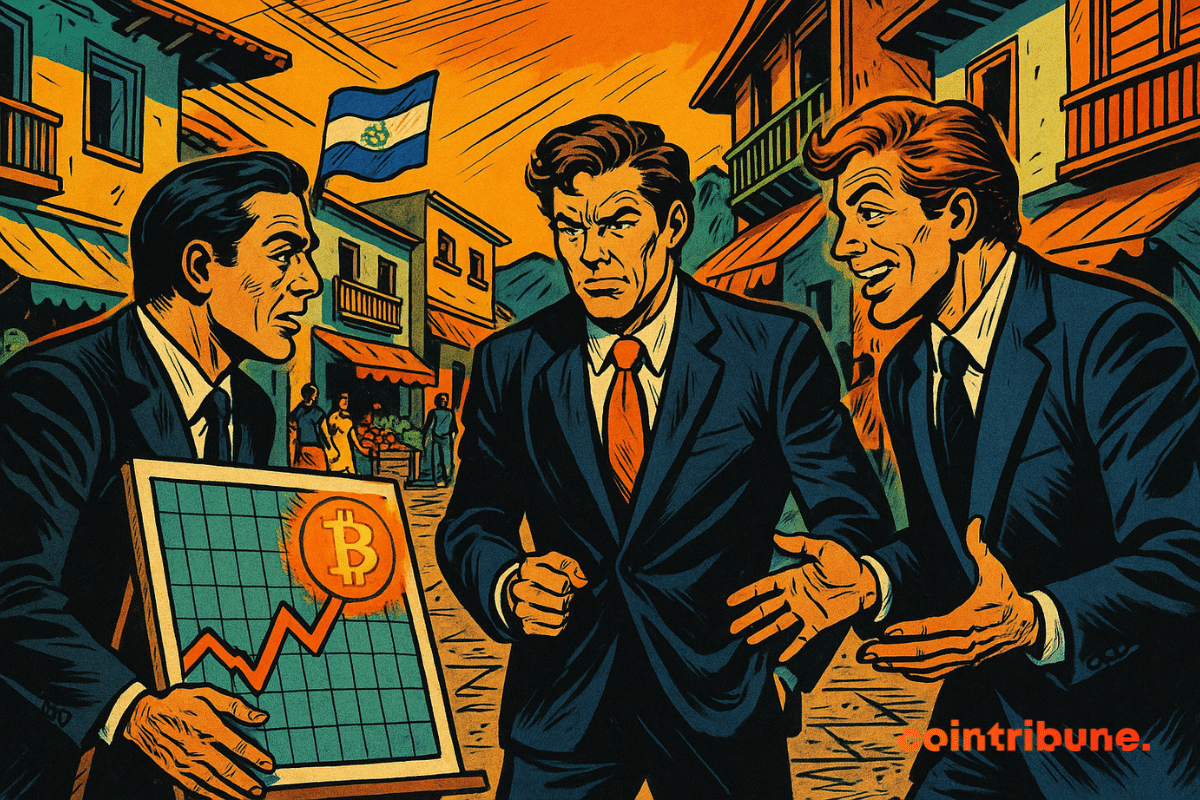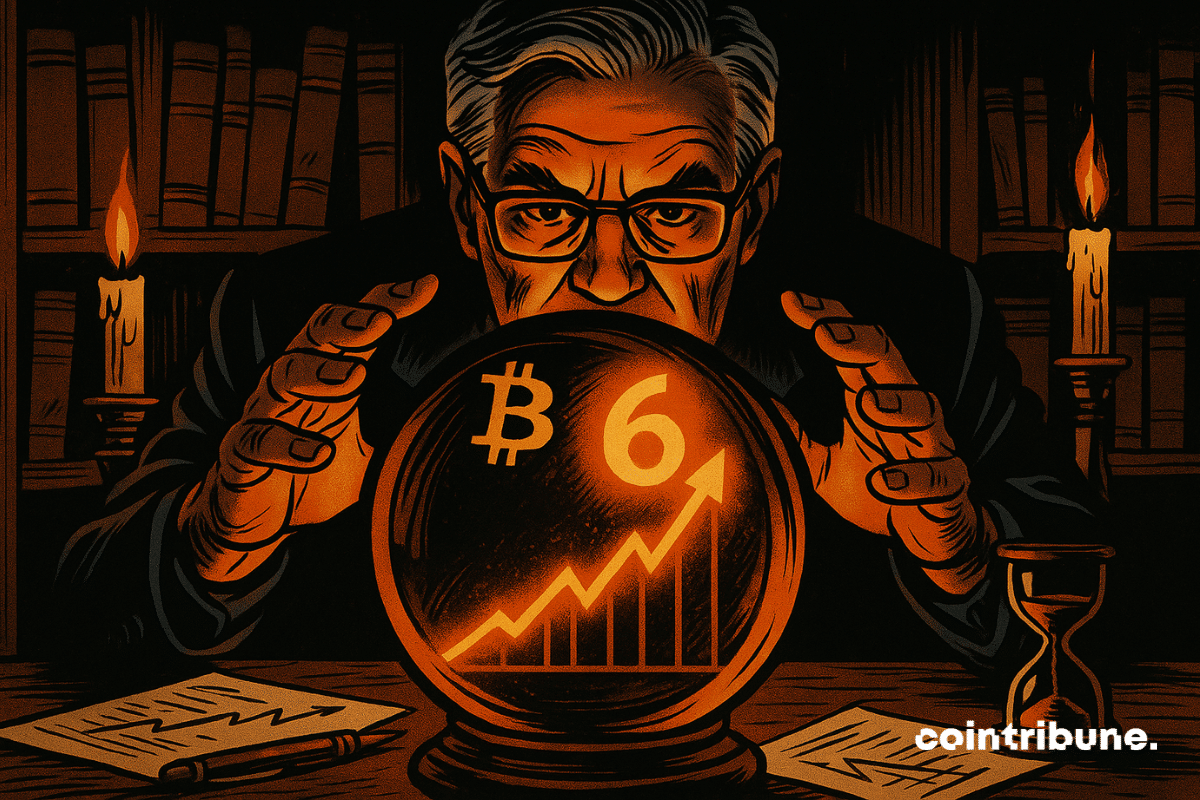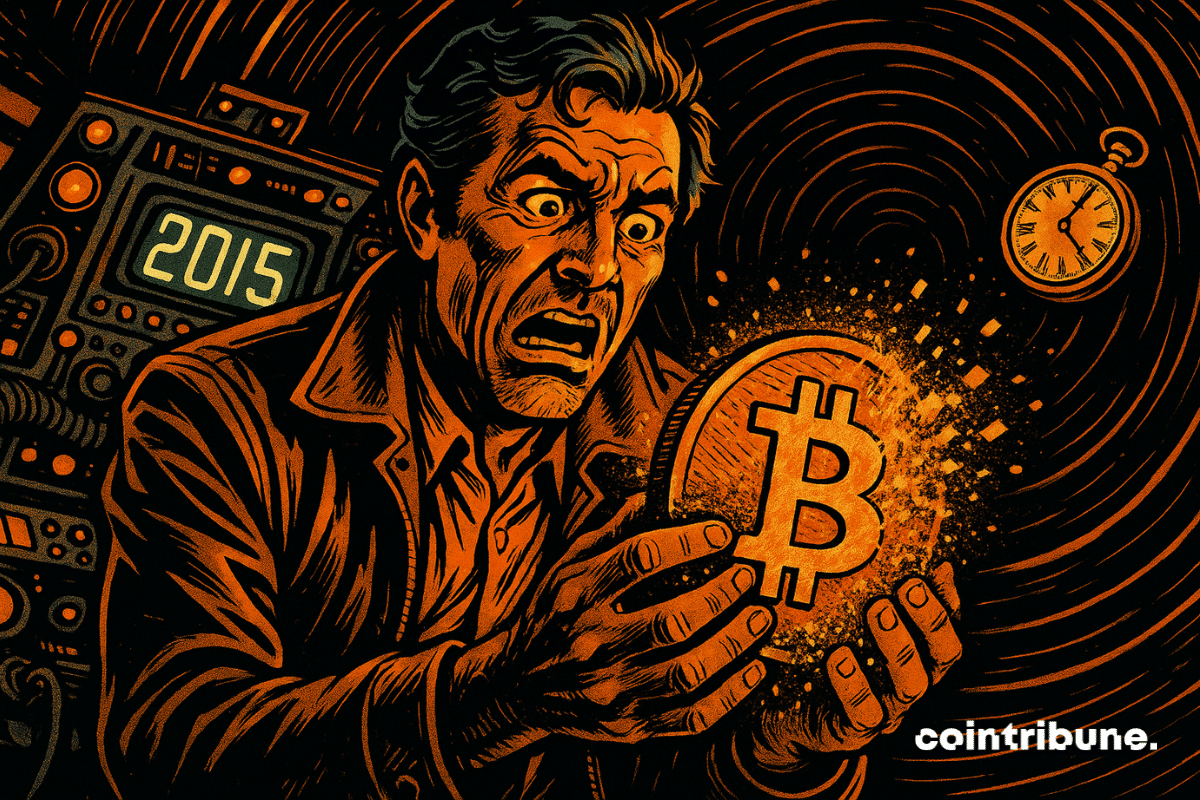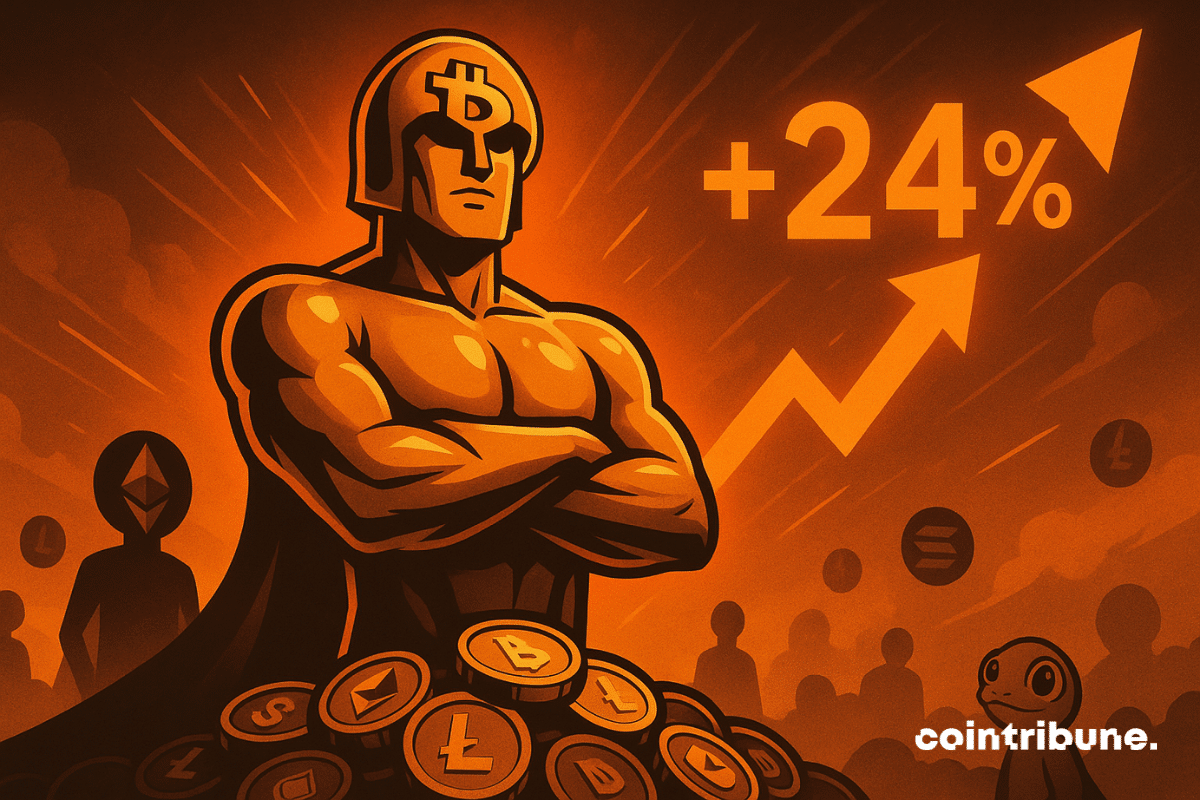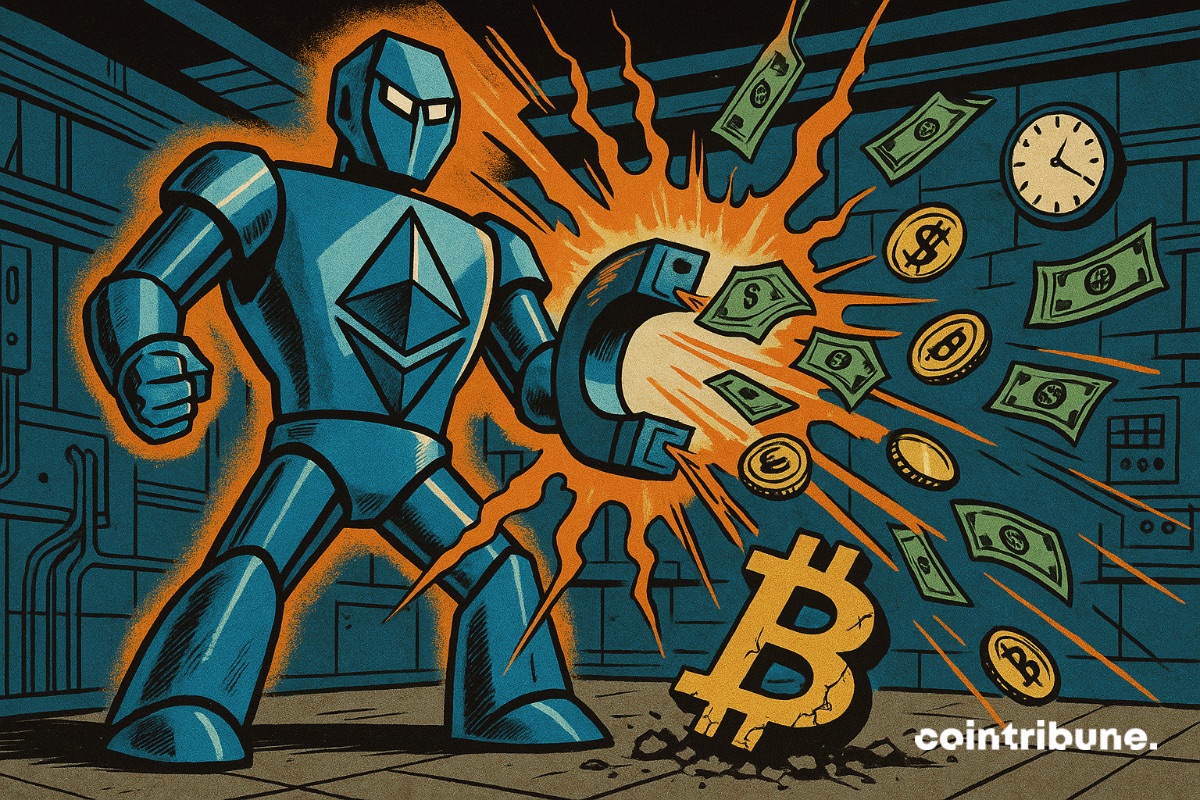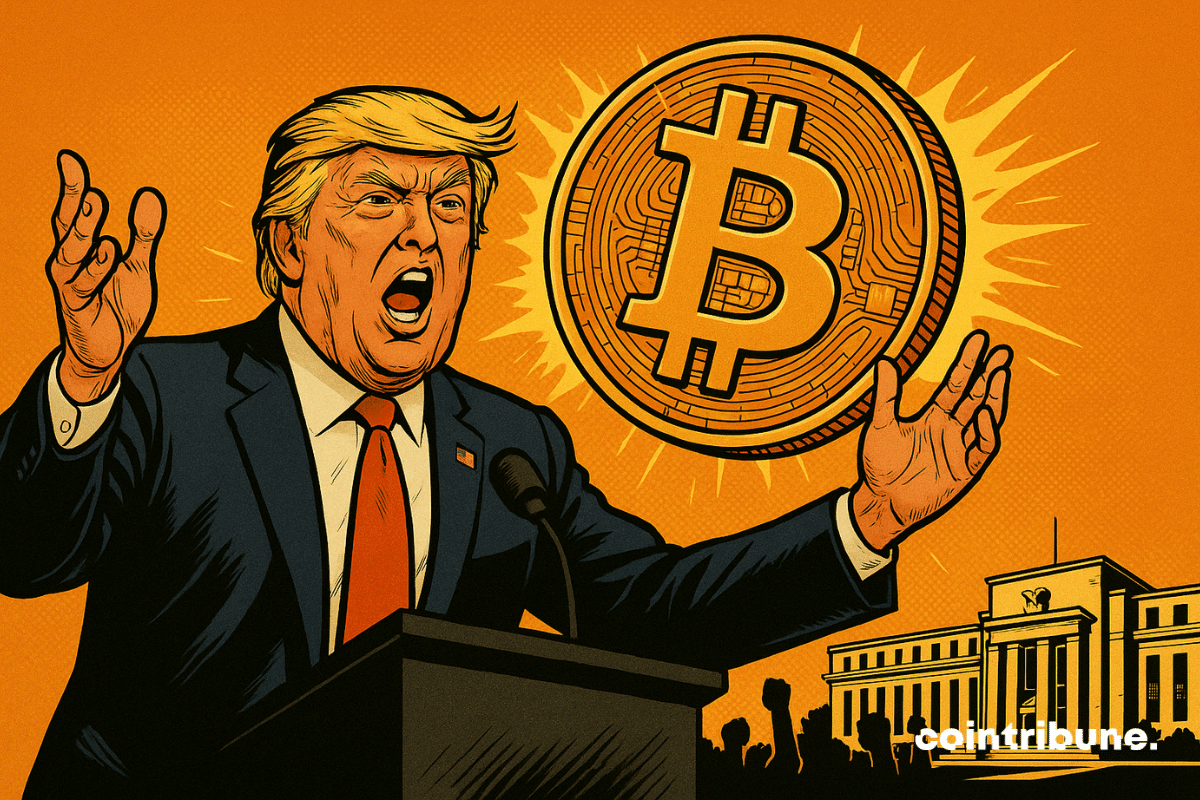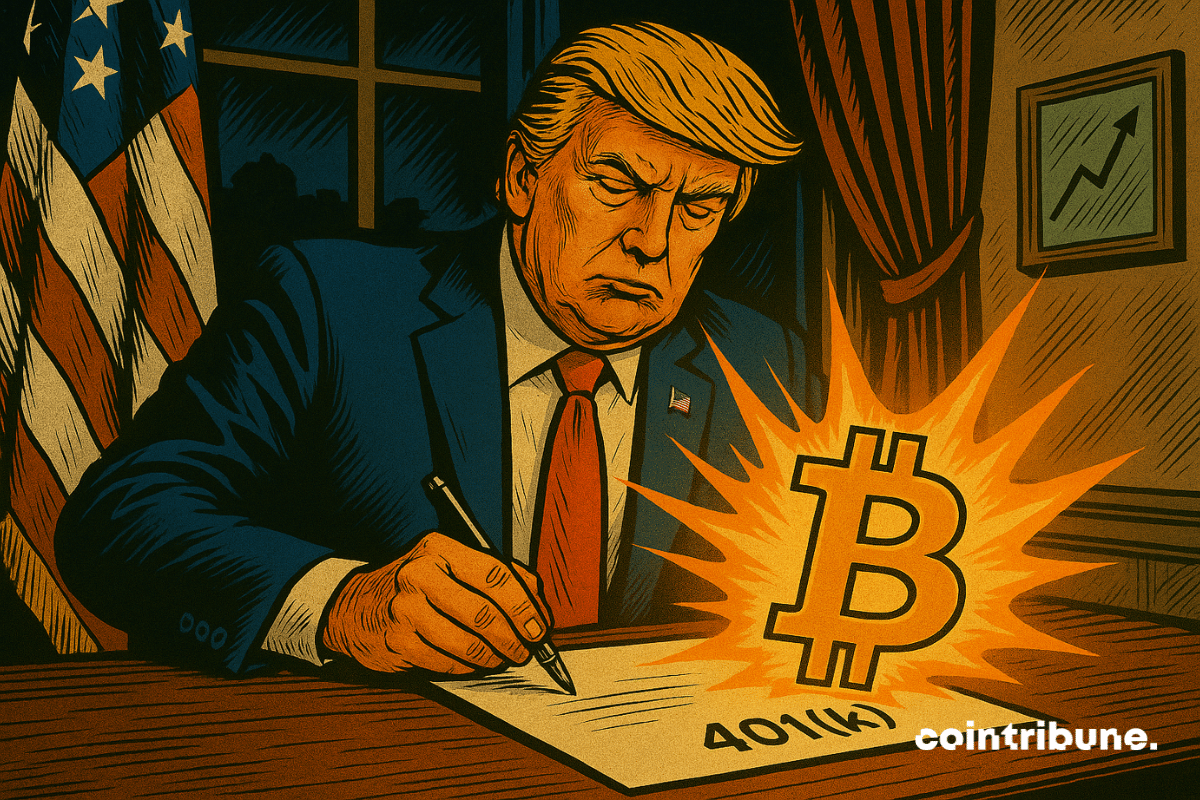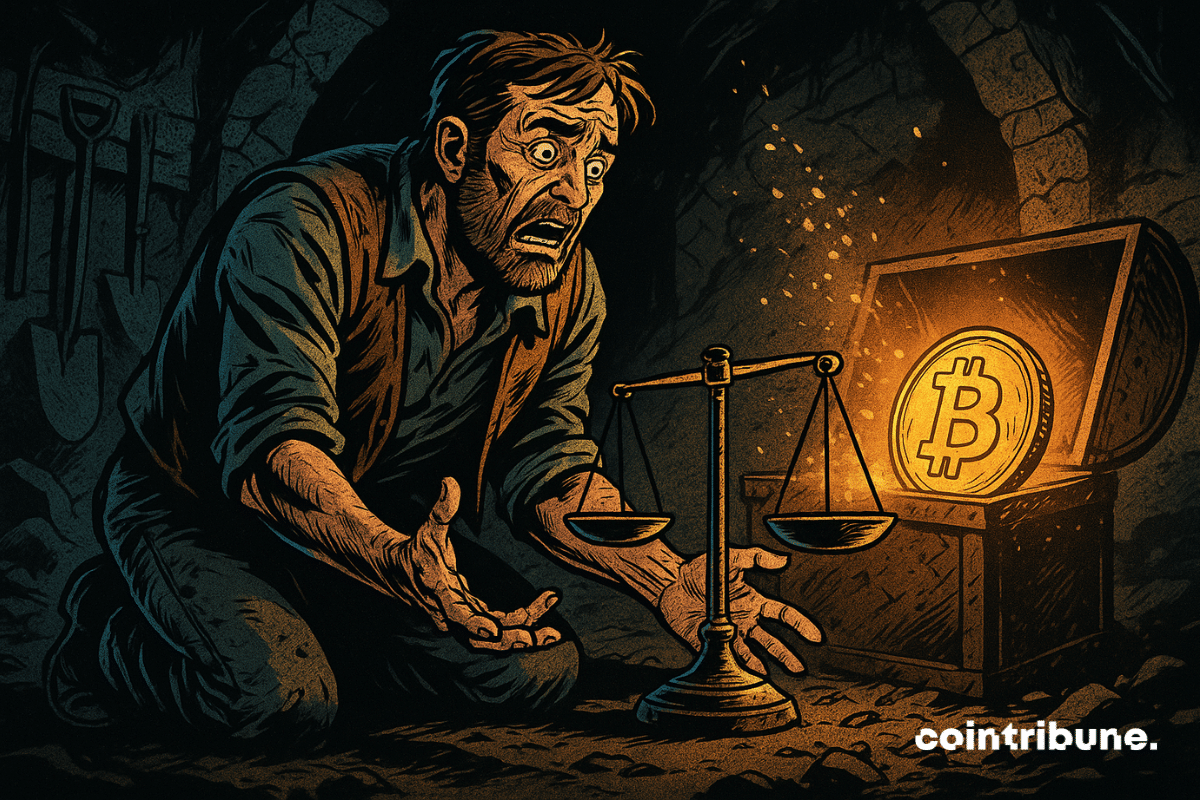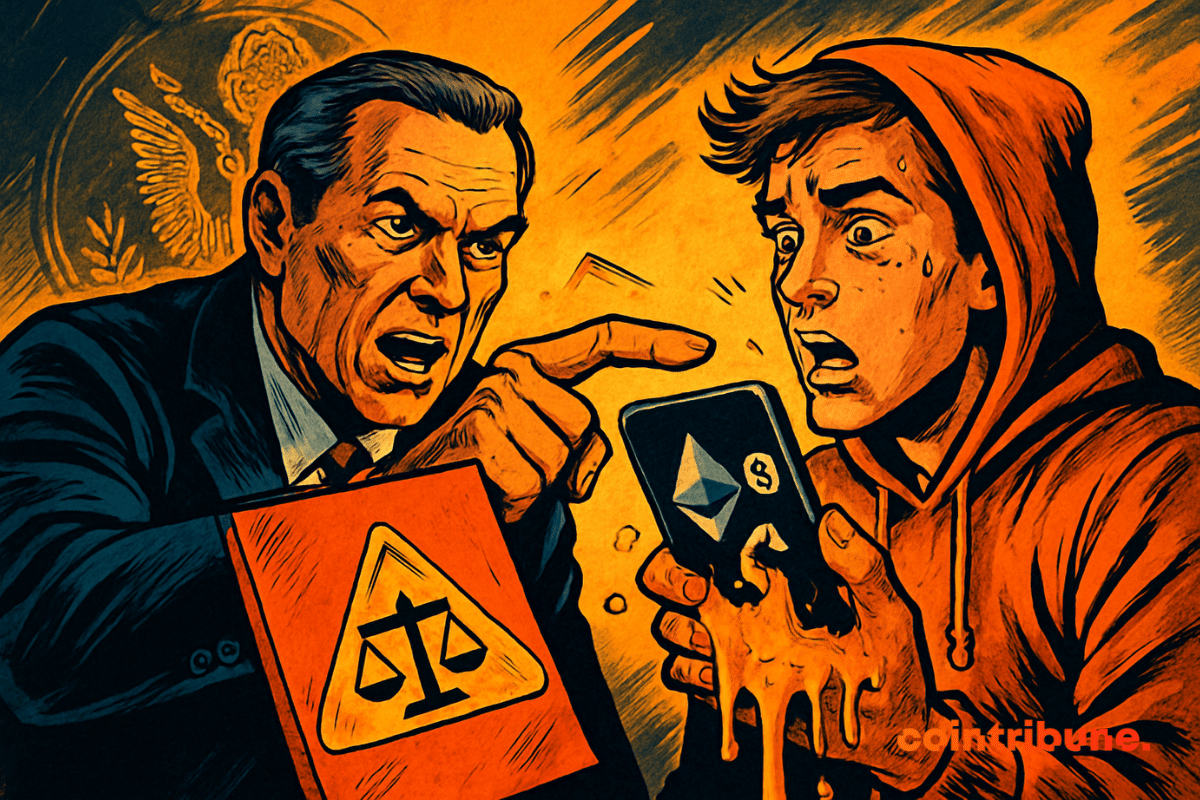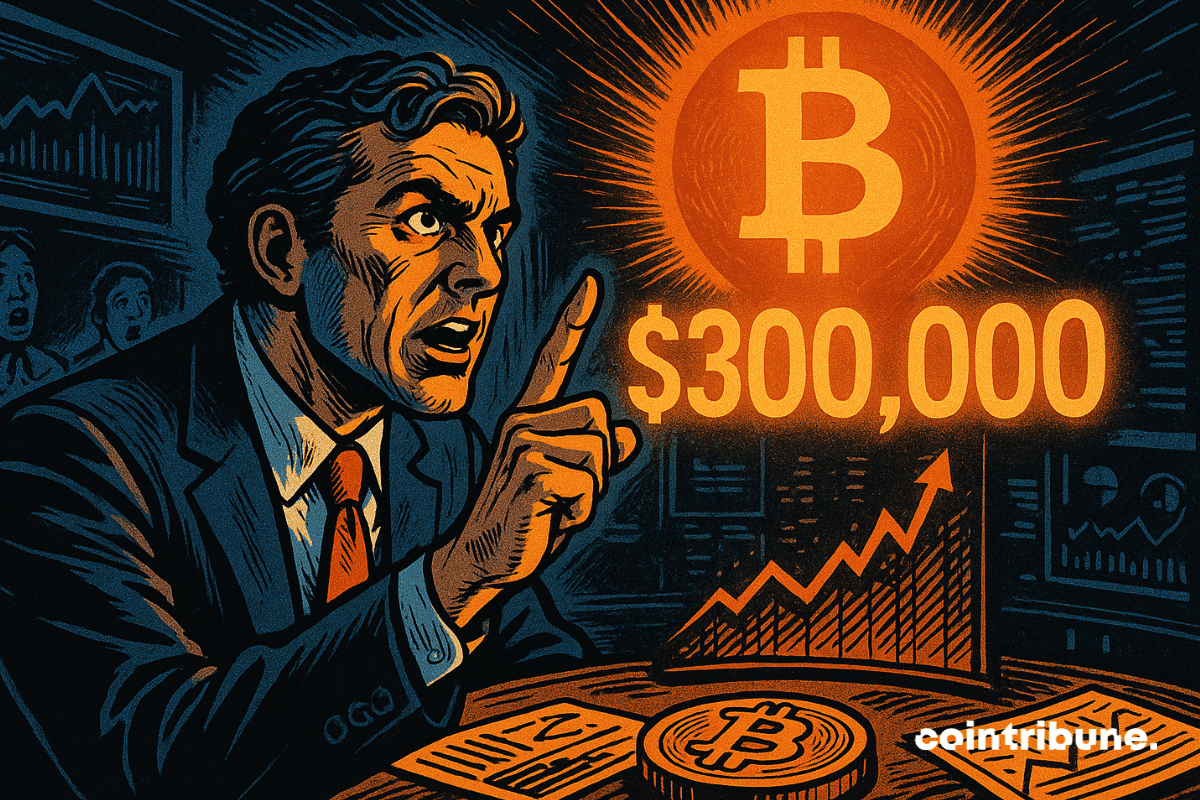In a now structured market, each bitcoin record acts as a revealer of the deep tensions crossing the ecosystem: shortage of supply, institutional pressure and shifting macroeconomic climate. On August 14, by breaking 123,500 dollars, bitcoin not only broke its previous high. It confirmed the entrance into a new maturity phase, fueled by precise technical and financial dynamics. This movement is neither fortuitous nor purely speculative, but the product of a structured sequence of converging signals.
Theme Bitcoin (BTC)
Crypto-focused funds are leading U.S. ETF launches, with Ethereum and Bitcoin attracting record inflows and growing investor interest.
In a few days, one of the key indicators of the robustness of the Bitcoin network experienced a striking turnaround. On August 8, the hashrate reached a historic peak before declining sharply, a sign of a sudden adjustment in the computing power mobilized to secure the blockchain. This reversal, occurring while BTC still hovers near its annual highs, rekindles debates on the balance between technical performance and economic constraints for mining specialists.
The crypto market is experiencing a new breakthrough. Two listed companies have massively strengthened their bitcoin positions, confirming the rise of its institutional adoption. While BTC firmly holds the $118,000 mark, Metaplanet and Smarter Web Company sign spectacular purchases. This strong signal illustrates the growing confidence of businesses towards the asset, now seen as a strategic treasury pillar rather than a simple speculative bet.
Bitcoin could break 140,000 $ and Ethereum target 4,600 $. The signals are piling up and tension is rising in the crypto market. A crucial question arises: are we at the gates of a new all-time high?
2025 could mark one of the biggest crypto bull runs in history. Between record inflows into ETFs, favorable US regulation, and explosive technical signals, Bitcoin, Ethereum and altcoins are preparing for an unprecedented surge.
Digital assets have transcended the corridors of financing, entering the realm of space exploration. In a recent update, Jeff Bezos’s Blue Origin has joined forces with American firm Shift4 Payments to offer crypto payment services for expeditions to outer space.
Ethereum drove strong inflows into crypto exchange-traded products last week, helping the market recover after earlier losses.
MARA Holdings, American Bitcoin mining giant, plans to acquire 64% of Exaion, a subsidiary of EDF specializing in data centers and artificial intelligence. This operation, estimated at 168 million dollars, reflects the group's desire to diversify its revenue sources while strengthening its BTC accumulation strategy.
The rapid rise of quantum computing revives fears of massive bitcoin hacking. Indeed, Microsoft’s revelation of its Majorana 1 chip, potentially capable of reaching one million qubits, fueled speculation about the end of the inviolability of private keys. However, Graham Cooke, former Google executive and now CEO of Brava Labs, dismisses these concerns. According to him, bitcoin cryptography remains out of reach, even for the most advanced machines.
Bitcoin is touching its all-time highs and Strategy is seizing the opportunity to celebrate a milestone: five years of uninterrupted purchases. The global leader among publicly listed companies holding BTC, Michael Saylor's group commemorates the event with a much more modest acquisition than usual. A symbolic gesture that, in a market hypersensitive to decisions by institutional heavyweights, reignites the debate on the viability of a forced-accumulation strategy, even when prices are flirting with their records.
Robert Kiyosaki, the author of 'Rich Dad Poor Dad', believes Bitcoin could dip to $90,000 this month, and he’s ready to take advantage of it. Kiyosaki sees the potential drop as a golden opportunity to expand his holdings, calling Bitcoin “pure genius asset design” and the easiest way he has ever made millions.
Michael Saylor highlights Bitcoin as a superior store of value while the cryptocurrency climbs above $120,000 amid growing institutional interest.
Altcoins are no longer a fleeting bubble. Their presence is consolidating to the point of attracting the biggest names in traditional finance. BlackRock, a Wall Street giant, is now opening up to leading cryptos like ether. This institutional shift changes the game in the crypto ecosystem. However, for Michael Saylor, a leading figure of MicroStrategy, a hierarchy is imposed: bitcoin remains the benchmark. And even if Ethereum shines, he refuses to grant it the same status.
After reaching an unprecedented high of $123,000, bitcoin begins a clear slowdown. The euphoria of recent weeks gives way to a consolidation phase, where every market movement is closely scrutinized. The latest Institutional Insights report from CryptoQuant reveals tangible signs of exhaustion: momentum decline, liquidity slumps, and sustained profit taking. This cocktail places the flagship asset at a crucial moment, between technical pause and correction risk.
Bitcoin’s record-breaking rally above $123,000 in mid-July has given way to a choppy and uncertain phase. The price has slipped to $116,191 as of press time, showing minimal change over the past 24 hours but up 0.65% over the week.
Between boldness and stubbornness, Bukele launches his "Bitcoin banks": one foot in global finance, the other in crypto, and the IMF coughing in its tie.
World Liberty Financial, supported by the Trump family, is preparing to create a Nasdaq-listed company to hold its WLFI tokens. This project inspired by MicroStrategy's pioneering strategy could open a new chapter at the crossroads of politics, financial markets, and cryptos.
The next weeks could decide the market's future, as bitcoin trades above 117,000 dollars. Indeed, legendary trader Peter Brandt warns that the crypto queen approaches a pivotal moment, possibly a temporary peak. With over ten years of post-halving cycle analysis, he cautions against a scenario that could surprise even seasoned investors. This alert comes as some experts doubt the relevance of bitcoin's historical cycle.
The announcement sent shockwaves through the traditional finance world. Harvard's prestigious endowment fund, with 53.2 billion dollars, revealed it had invested 116 million dollars in BlackRock's Bitcoin ETF. While Harvard had already shown a timid interest in crypto in the past, this operation marks a symbolic step: the largest American university now officially backs the locomotive of the crypto market.
Turning a few tens of dollars invested in bitcoin into billions: the scenario is a dream. However, behind this simplistic equation, trader Techdev recalls a much less glamorous reality. In a viral post, he points out that achieving such a result would have required unwavering conviction and exceptional psychological resilience in the face of market shocks. A message that resonates as bitcoin has just crossed a new ATH above $123,000 on July 14, reigniting myths and speculation.
Is bitcoin undervalued? A key indicator, the "Energy Value" from Capriole Investments, estimates that its "fair value" reaches 167,800 dollars, 45% above its current price. Designed by Charles Edwards, this model is based on the energy power used by the network. The unprecedented gap it reveals revives the debate about the true valuation of the asset and the market's ability to close this gap in the coming months.
The second quarter of 2025 will go down in history as a major turning point for the cryptocurrency market. After a gloomy start to the year marked by geopolitical tensions and regulatory uncertainty, the crypto ecosystem once again demonstrated its spectacular resilience capacity. The CoinGecko quarterly report, an essential reference for crypto analysis, reveals numbers that speak for themselves: 24% growth and an unprecedented resurgence of institutional confidence.
Bitcoin is losing ground, Ethereum is capturing attention. Discover why institutional investors are massively reallocating their capital towards Ethereum ETFs, amid a shifting crypto market and on the brink of a decisive regulatory turning point.
Donald Trump strikes again. After opening 401(k) retirement plans to alternative assets like bitcoin, he appoints Stephen Miran, a pro-Bitcoin economist, to the Federal Reserve board. A move welcomed by the crypto market, propelling BTC beyond 117,500 dollars.
Trump plays the Pygmalion of bitcoin by inviting it into US pensions: a blow to Wall Street, a boost for savings accounts!
While the bitcoin market seems stuck in a waiting phase, reserves are running low on OTC desks, those platforms where institutions buy without moving prices. The company Strategy, which has already acquired more than 182,000 BTC this year, finds itself on the front line. Facing a drying supply, pressure is mounting. What if the next bullish shock was preparing... silently?
While the crypto industry is still searching for its regulatory compass, the SEC has just spotlighted a rapidly growing practice: liquid staking. In a statement as technical as it is meaningful, the agency specifies that certain forms of liquid staking could escape securities regulation. A welcome nuance, certainly, but one that does not dispel the lingering legal gray areas over the sector. Analysis.
Warning signs are everywhere. Between the explosion of inequalities and record debt, the global financial system is dangerously shaky. Faced with 37 trillion dollars of debt in the United States alone, one question arises: are we witnessing the end of capitalism as we know it?
A top crypto analyst predicts Bitcoin could soar to $300,000 by 2026 despite mixed market sentiment, supported by strong technical signals.
